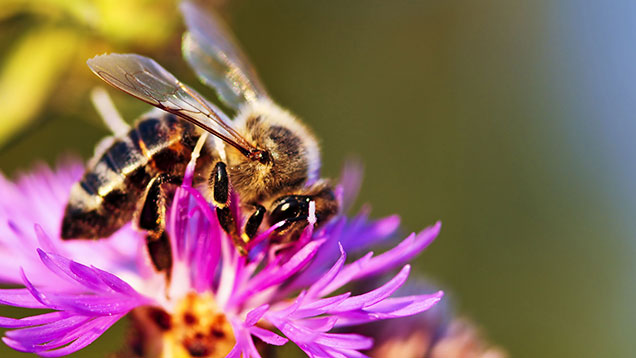Hot weather helps Britain’s bees bounce back
 © Rex
© Rex Britain’s honeybees produced their best crop for five years in 2014, according to figures released by the British Beekeepers Association (BBKA).
Better weather and better beekeeping helped increase honey production, the BBKA said.
Beekeepers reported an average yield of 32lbs of honey per colony this year – a 28% increase on the 25lbs per colony recorded in 2013 and a far cry from the 8lbs per colony nadir in 2012.
Contributory factors to the improved honey yields included the hot weather, mentioned by 60% of beekeepers, the early spring (58%) and swarming (19%).
See also: Poor weather blamed for record honeybee losses
The annual honey yield survey of 2,000 beekeepers across the country explores yield and factors affecting honeybee colonies and honey production.
BBKA director of public affairs Tim Lovett said the increase was “great news” for beekeepers and honeybees. But he warned there was “still some way to go” to return to the historic average of 40lbs per colony.
“Beekeeping has enjoyed a resurgence in popularity in recent years and it is crucial that we do not lose the momentum,” said Mr Lovett.
“Honey bees are essential pollinators and vital contributors to food production. The better weather has helped a great deal but it is also the improving husbandry skills of beekeepers, as they gain experience, that has made a big difference.
“These very precious creatures still need all the help we can give.”
A two-year EU ban on neonicotinoid pesticides, which have been blamed for contributing to bee deaths, started in December 2013.
But Syngenta, which manufactures thiamethoxam, one of the banned chemicals, said poor weather and habitats were the main culprit for declining bee health and not agrichemicals.

